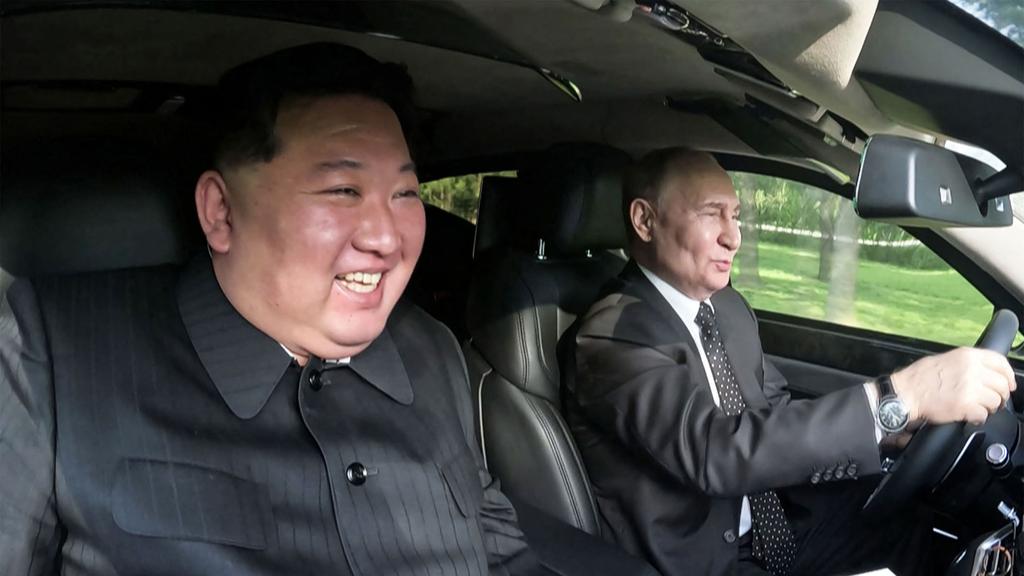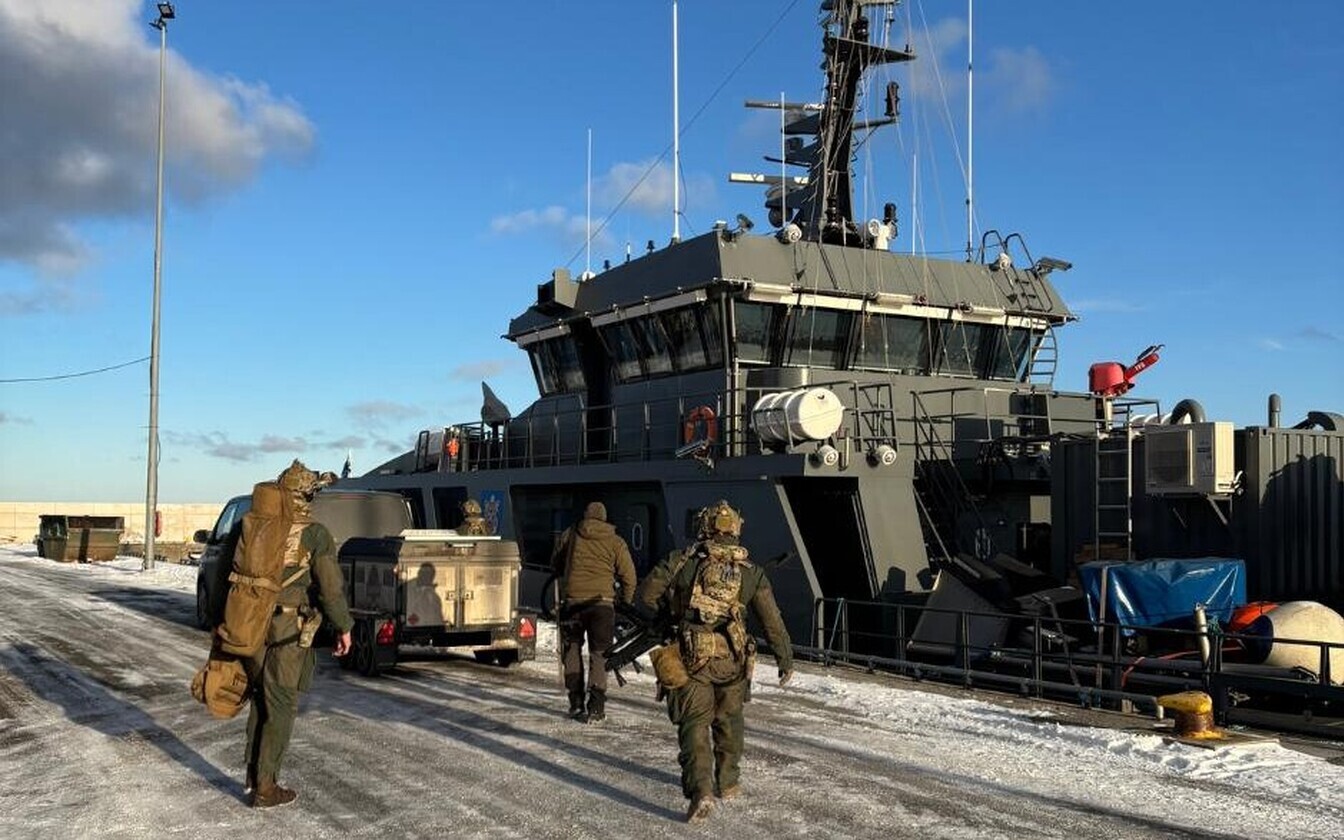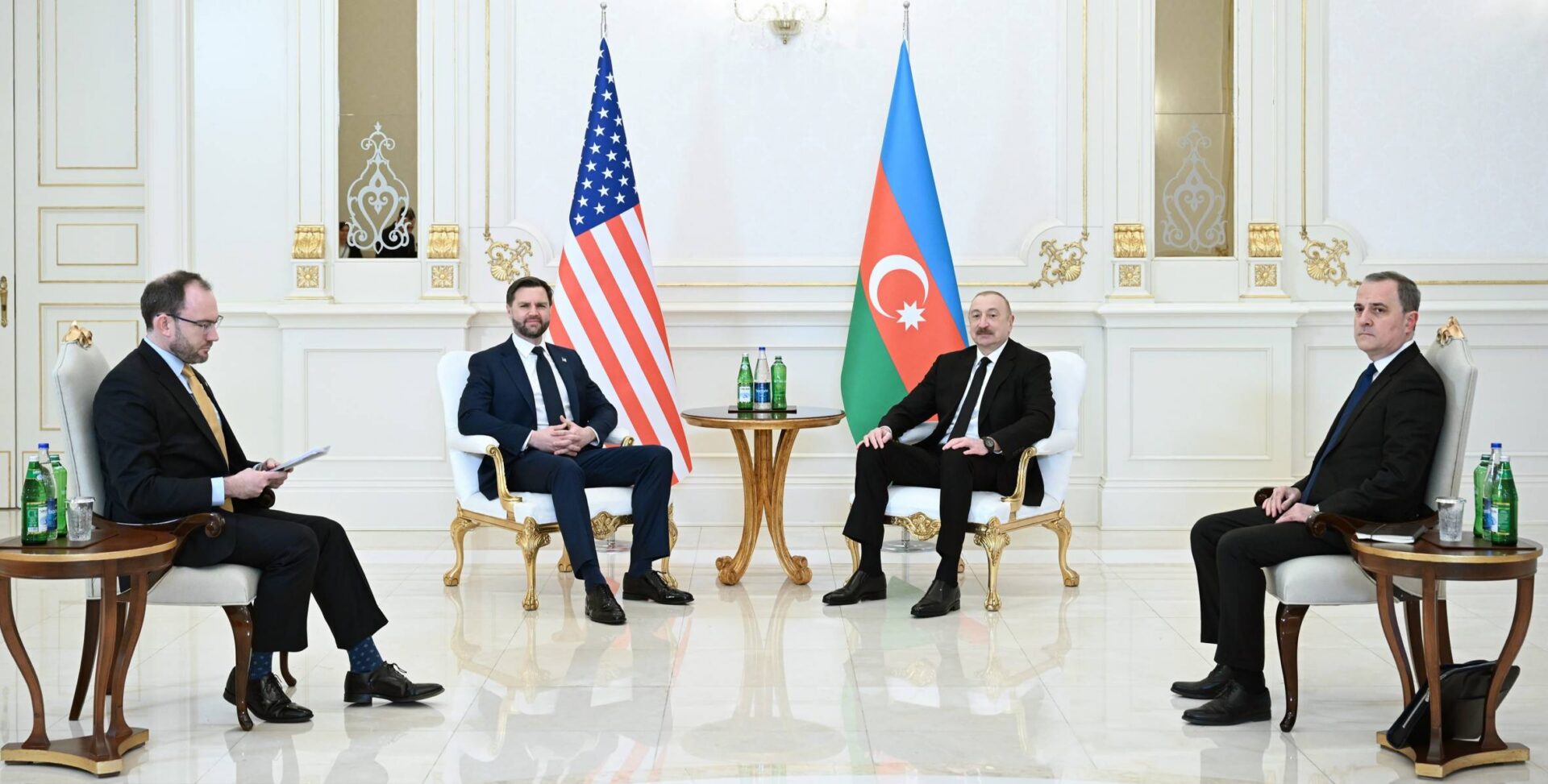
Putin’s Asia Tour Exposes Russia’s Rapid Degradation From Long War
Putin’s Asia Tour Exposes Russia’s Rapid Degradation From Long War
Executive Summary:
- Russian President Vladimir Putin visited North Korea and Vietnam to neutralize the diplomatic outcomes of the peace summit in Switzerland and prove Russia’s ability to maintain a high international profile.
- Nuclear saber-rattling and Moscow’s need for more artillery shells were high on Putin’s agenda in Pyongyang, though North Korea’s faulty munitions have caused more problems than solutions for Russian forces in Ukraine.
- Putin’s recent diplomatic efforts are focused on stirring trouble and fomenting tensions as Russia can only continue to claim a prominent role in international affairs in a fraught geopolitical environment
Although the Summit on Peace in Ukraine in Switzerland may have produced more of a symbolic joint declaration, it signified a major setback for Russia’s extensive efforts at sabotaging the event (see EDM, June 17, 18). Russian President Vladimir Putin’s visits to North Korea and Vietnam on June 18–19 and 20, respectively, were intended to neutralize Ukraine’s diplomatic wins and prove that Russia still maintains the capacity to hold a high international profile. The breakdown of the long-established pattern of cooperation with Europe has turned the proposition for executing the Kremlin’s “pivot to Asia” into an imperative (see EDM, November 3, 2023). Still, the ongoing war has severely hurt Moscow’s ties with many key actors in the Asia-Pacific, from Japan and South Korea to Singapore and the Philippines. The Kremlin is keen to demonstrate that the proclaimed “pivot” is not reduced to one-sided dependency on China (see EDM, April 17). Moscow officials, however, find it increasingly difficult to reckon with the reality of the country’s meager economic weight and minuscule capacity for projecting power in the vast dynamic region beyond its chronically depressed Far East (see EDM, February 6, 2023; May 14).
Putin’s state visit to North Korea was a rare occurrence, and North Korean dictator Kim Jong Un broke his usual protocol and met Putin’s plane on the tarmac (Meduza, June 18; Kommersant, June 19). The cordial embrace with one of the world’s most notorious dictators reeks of desperation for Putin, as Soviet leaders and high-ranking officials never demeaned themselves by traveling to Pyongyang (Nezavisimaya Gazeta, June 18; Carnegie Politika, June 19).
North Korea needs as much Russian oil and grain as possible. It can only pay, however, by “exporting” its labor force, which is prohibited by the sanctions regime and decried by both autocrats, and providing antiquated and faulty munitions (Forbes.ru, June 20). Russia urgently needs more artillery shells, as its own military-industrial complex cannot keep up with the growing demand (see EDM, May 30). It remains unclear whether the newly signed treaty on “comprehensive strategic partnership” indicates Moscow’s readiness to supply missile and space technologies in exchange for Pyongyang’s assistance (Meduza, June 21; The Insider, June 22). South Korea is taking the agreement seriously and has signaled its readiness to reciprocate by exporting weapons to Ukraine, despite Putin’s warning of such actions being a “big mistake” (Izvestiya, June 20). The Kremlin leader’s visit made clear that the war is driving Putin’s regime closer to the North Korean model of a militarized, severely repressive dictatorship (Svoboda, June 20).
Putin’s visit to Vietnam, which has developed a softer autocratic model, was necessary for the Russian leader to preserve a semblance of distance from Kim, who is treated in the region as a pariah (Kommersant, June 20). For Hanoi, expanding the space for political maneuvering may be more important than expecting profits from limited trade with Russia. At the moment, new deals on arms imports, which are traditionally of pivotal importance, are effectively out of the question (Izvestiya; Nezavisimaya Gazeta, June 20). Vietnam opted not to partake in the Switzerland summit, perhaps seeking to lighten the agenda of Putin’s visit. Still, Hanoi is keeping its options open in the complex balancing game between China and the United States (Kommersant, June 20).
One feature of Putin’s discourse during the visits was a further escalation of his nuclear saber-rattling (Izvestiya, June 20). Possible revisions in Russia’s military doctrine may not be notable, but exercises aimed at preparing the delivery systems for the use of non-strategic nuclear munitions are a serious cause for concern (see EDM, May 9, 23, June 17; RIAC, June 21; Re: Russia, June 21). So long as the Russian top brass continue to claim success in the current offensive, the strategic rationale for crossing the nuclear threshold remains feeble. Still, the heavy losses in relentless attacks grant Ukraine a gradually crystalizing opportunity to regain the initiative on the battlefield (Svoboda, June 21). The swings in Putin’s rhetoric from arrogant confidence to warnings about the unacceptability of a strategic defeat indicate a risk of overreaction to a possible Ukrainian tactical breakthrough, which might prompt the Kremlin to reach for the nuclear panic button (Meduza, June 8).
China has repeatedly warned against resorting to nuclear brinksmanship, and its support for Russia’s war has been both crucial and, at times, ambivalent. Chinese Communist Party General Secretary Xi Jinping granted Putin an enormous favor by not sending an observer to the summit in Switzerland, where nuclear safety was a key agenda item (Novaya Gazeta Europe, June 19). Xi likely expected Russian gratitude in return. Instead, he heard ambitious demands to depart from the vague Chinese “peace plan” and observed Moscow’s eagerness to expand military cooperation with North Korea (Nezavisimaya Gazeta, June 18).
Beijing will likely be able to ensure that Russia’s outreach to Vietnam does not include any arms exports. Still, Putin’s efforts at alliance-building with North Korea make it more difficult to restrain the dictator in Pyongyang (The Moscow Times, June 21). Xi has many subtle ways to convey his disappointment to Putin, whom he is scheduled to meet with at the Shanghai Cooperation Organization summit in Astana on July 3 and 4 (RIAC, June 20; Tengri News, June 21). The long-discussed mega-project for constructing a gas pipeline from the Yamal gas fields to China, which Gazprom desperately needs after losing its market in Europe, seems certain to remain a far-fetched proposition (see EDM, February 6, 2023; Novaya Gazeta Europe, June 18).
Putin’s recent diplomatic efforts are essentially focused on stirring trouble and fomenting tensions as only in such a fraught geopolitical environment can Russia continue to claim a prominent role in international affairs. The Kremlin leader’s vision of a conflict-rich “multipolar world” is shaped by the changes of a long war. While China is a revisionist power, Russia has become a significant disruptor with a diminished capacity for projecting power and an undiminished desire for manipulating conflicts. Moscow’s best option for escaping the self-made trap of an unwinnable war is a spiraling escalation of the confrontation between China and the United States, to which it is all too happy to supply catalysts and triggers. Xi sticks to careful calculations of risks and benefits, but Putin’s war-making distorts the picture to such a degree that even North Korea’s Kim appears pragmatic in comparison. The big question for China is how to relate to and manage the prospect of Russia’s defeat, as Ukrainian forces are gearing up with newly supplied Western systems and munitions.


